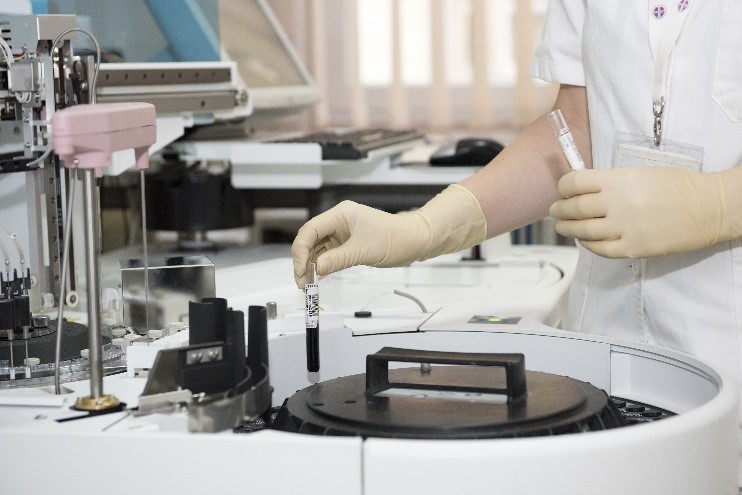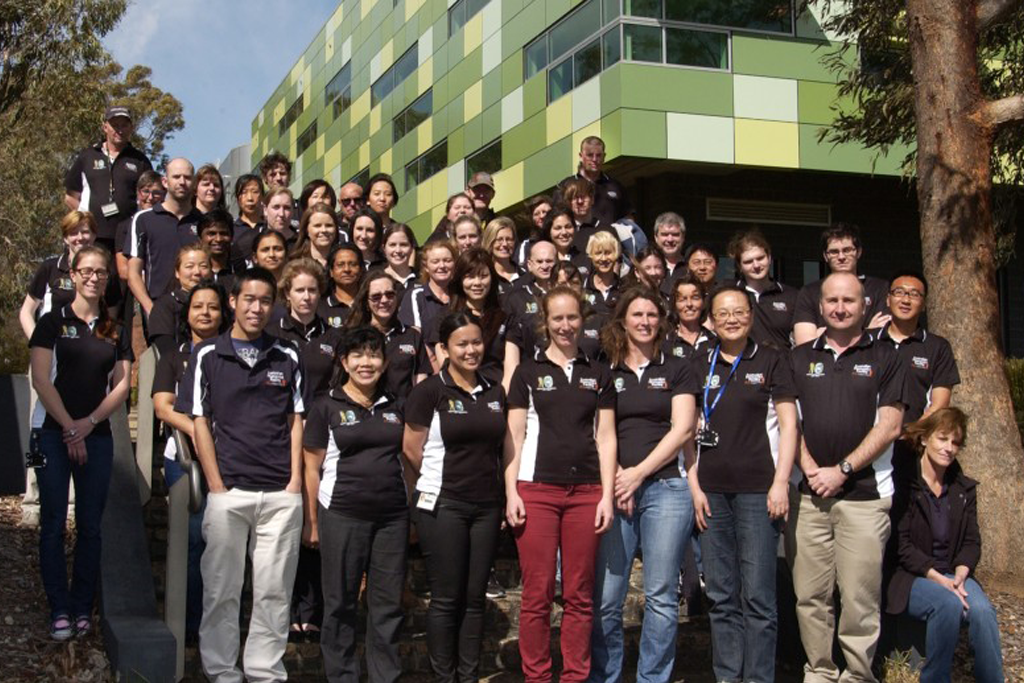The Australian Phenomics Facility (APF) at ANU was founded in 2005, initially funded directly by the Australian Commonwealth Government before Phenomics Australia was founded. For the past nearly 15 years, the APF has developed an international reputation for the screening of phenotypes and genotypes involved in diseases. The work carried out at the APF captured the attention of leading US biotechnology company, Genentech. In 2014, Genentech and ANU collaborated in an 18-month project which led to one of the biggest medical discoveries for both the APF and Genentech in the last 15 years.
~ Rhyannah Hamer

For nearly 15 years, the APF based at the John Curtin School of Medical Research at ANU has developed into an internationally renowned facility for its unique screening procedures. Thanks to funding from the Australian Government’s NCRIS, Super Science and CRIS programmes now facilitated by Phenomics Australia, the APF was able to develop effective technology for the identification of new genes involved in the phenotype and/or genotype of diseases.
In 2005, researchers at the APF made a ground-breaking discovery of a gene involved in the autoimmune system which received worldwide attention. This contributed to the APF’s international reputation for screening, and even prompted international funding from organisations such as the National Institutes of Health based in the United States.
An increase in funding and an international reputation as a high quality facility made the APF a candidate for a two year beta-test for mouse exon sequencing, which ran from 2009-2010. This allowed for the sequencing of mouse genes within 2 months, a process that would take 2-4 years before this project. Ultimately, it was the speed of this process which piqued the interests of Genentech, a leading biotechnology company based in the US that is part of the Roche Group.
‘“We commit ourselves to scientific rigor, unassailable ethics, and access to medical innovations for all. We do this today to build a better tomorrow.”-Roche Group.’
Founded more than 40 years ago, Genentech discovers, develops, manufactures and commercialises medicines that are used to treat patients with serious or life-threatening medical conditions. They are among the world’s leading biotechnology companies, with a number of products on the market for patient treatment and a promising development pipeline.
Collaboration between the APF and Genentech initially took the form of a relatively small 18 month project that began in 2014. However, this project led to one of the most significant medical discoveries for either facility for the past 10-15 years. Researchers found a new gene, known as Gasdermin-D, which is involved in a biochemical pathway in the human body that can lead to sepsis. The discovery was published in Nature in 2015 and has been cited by hundreds of researchers.
Sepsis is a life-threatening condition that arises when the body’s response to an infection damages its own tissues and organs. Left untreated, it can lead to septic shock and organ failure, with a 50% chance of death. It is the leading cause of death from infection around the world, responsible for the deaths of around 5000 Australians each year – more than breast, prostate or colo-rectal cancer.
‘“The identification of Gasdermin-D can give us a better understanding not only of lethal sepsis, but also of multiple other inflammatory diseases.” – Dr Nobuhiko Kayagaki, Ph.D., Senior Scientist from Genentech.’

This is the heading
Researchers at the APF employed a large-scale screening of thousands of genes with the unique facilities at the APF. Genentech provided significant funding, background intellectual property and contributions to experimental design. Together, researchers discovered the role of Gasdermin-D in the biochemical pathway of sepsis. Sepsis is caused by molecules found in bacteria known as lipopolysaccharides (LPS) activating an enzyme known as caspase-11, which causes pyroptotic cell death. However, until this discovery, there had been no information on how caspase-11 executed these signals which resulted in cell death. This research showed that Gasdermin-D was directly involved in the cell death pathway triggered by caspase-11. When caspase-11 cleaves Gasdermin-D, there is a leftover amino-terminal fragment of Gasdermin-D in the cell which causes pyroptosis.
‘“This finding is a key that could potentially unlock our ability to shutdown this killer disease before it gets to a life-threatening stage,” – Professor Chris Goodnow, The Australian National University and Garvan Institute of Medical Research
Since the discovery of the Gasdermin-D gene, Genentech has continued to collaborate with the APF to screen thousands more genes. As of 2019, the project has expanded 3-fold to a total of 350 pedigrees. The success of the sepsis genes screening has prompted Genentech and the APF to widen their scope to other disease areas such as neurological diseases and cancer, however this is within very early stages.
The collaboration between the APF and Genentech has also allowed for the hiring of 15 new staff into their phenotyping team, with a majority of these staff being graduates from the ANU. This presents an invaluable opportunity for ANU graduates to develop an understanding of how real-life research is carried out.
The collaboration between the APF and Genentech is built on nearly 15 years of development of the gene screening technique at the APF. The work they have, and continue to carry out together, will directly impact the health of not only Australians, but patients affected by conditions such as sepsis worldwide.
References:
Australian Sepsis Network 2019, https://www.australiansepsisnetwork.net.au/
Genentech 2019, https://www.gene.com/about-us
Kayagaki, N. et al. (2015). Capase-11 cleaves gasdermin D for non-canonical inflammasome signalling, Nature, doi:10.1038/nature15541
The Australian National University, ANU-Genentech collaboration identifies new gene in pathway to sepsis, https://jcsmr.anu.edu.au/news-events/news/anu-genentech-collaboration-identifies-new-gene-pathway-sepsis







